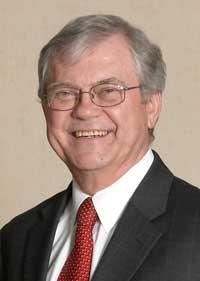News
PAMMA Makes Case For Legal Video Poker In Pennsylvania - Lawmakers Could Introduce Bill In March
February 16, 2015 | Hank Schlesinger and Nick Montano
TAGS: Pennsylvania video poker, video poker machine, video gaming terminal, electronic gambling, Pennsylvania Amusement and Music Machine Association, Pennsylvania Tavern Association, John Milliron |
 |
John Milliron |
PAMMA's John Milliron this month told state lawmakers here that legalizing electronic machines for slots, poker and blackjack would net significant revenue for local businesses and governments. He estimates that electronic gaming could generate upward of $1.4 billion a year, with about one third of that going into Pennsylvania's tax coffers. He also observed that similar but unregulated games are already widespread.
Milliron's revenue estimate is based on Illinois's fledgling video gaming terminal program, which went online in September 2012 with 61 machines in a handful of bars. At the end of 2014, the Illinois VGT market had grown to 19,182 machines in 4,675 locations, and the take for state and local governments more than doubled. State revenue from VGTs exceeded $164.8 million in 2014, compared with $75.1 million in 2013, according to the Illinois Gaming Board. Municipalities received $32.9 million, compared with $15 million the year before.
PAMMA is hoping that lawmakers will introduce an electronic gaming bill, modeled after the Illinois Gaming Act in the Pennsylvania House in March. If 65% of liquor-licensed businesses apply for licenses to install machines, Milliron predicted, the state could see its legal video poker market grow to more than 30,000 machines, if locations install an average of five.
State Rep. Dom Costa (D-Allegheny County) supports a video poker program in which privately owned amusement businesses operate the terminals. Costa is a member of the House's Gaming Oversight Committee.
Over the past 25 years, Pennsylvania has considered legislation several times that would have legalized video poker. In 1990, the late Gov. Bob Casey vetoed such a bill, and since then House lawmakers twice passed similar legislation that failed to pass in the Senate. In 2009, ex-Gov. Ed Rendell, who pushed for casino gambling, tried to legalize video poker as a resource for college tuition assistance.
At the time of Rendell's gambling proposal for tuition-assistance, the state government estimated that 17,000 video poker machines were operating illegally in Pennsylvania (other sources say that number is much higher). Establishments that pay a licensing fee to their local municipalities are allowed to have poker machines -- and pinball machines, videogames, jukeboxes and other coin-op devices -- but the machines are restricted to amusement-only play.
Current Gov. Tom Wolf's position is unknown, but he predicted a $2.33 billion deficit for next year when he took office in January. Pennsylvania's brick and mortar casinos, who pay big money for their licenses and turn over a substantial cut to the state, are against localizing VGTs.
PAMMA's Milliron believes Pennsylvania is ready for a legalized video poker program, and sees several benefits that officials cannot ignore. "There is a huge deficit that Gov. Wolf has described," he told Vending Times, "and Republicans and Democrats in the House and Senate have said they will not vote to raise taxes. We will also get rid of an estimated 40,000 illegal games that are untaxed and unregulated, and which rip off players. And a legal video poker industry will create thousands of jobs for Pennsylvania."
Milliron noted that in Illinois an estimated 10,000 new jobs have been created because of video gaming terminals. "Those jobs were created in the hospitality and amusement gaming industries," he said. "We hope that will happen in Pennsylvania."
SOURCE:
Trib Total Media » Advocates: Legalizing video poker machines in Pa. could be gold mine
 ChatGPT
ChatGPT Grok
Grok Perplexity
Perplexity Claude
Claude






